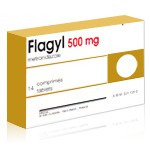Understanding and Treating Infections Responding to Metronidazole


What Kind of Infections Can Be Treated with Metronidazole?
Have you ever wondered why some infections do not go away with common antibiotics? That’s because certain bacteria or parasites live in places in the body where regular medications cannot reach, or they require a special kind of treatment. One of the medicines used for these cases is Metronidazole, a drug that works against specific infections caused by bacteria and parasites, especially in areas without much oxygen. Metronidazole is helpful for infections inside the belly, female reproductive system, gums, and intestines. It is also used for some infections passed between people during close contact. The drug is not a general antibiotic, so it is only used when doctors know the infection can respond to it.
Metronidazole is often used to treat:
- Infections in the belly, like those from surgery or injury
- Infections in the gums and mouth
- Certain types of infections in the female reproductive system
- Infections in the intestines caused by parasites
- Skin wounds or ulcers that do not heal properly
How Do These Infections Affect the Body?
Infections that respond to Metronidazole often come from bacteria that grow without needing oxygen. These infections can be dangerous if left untreated, spreading to other parts of the body or causing pain, fever, and swelling. People with these infections may feel tired, sick, and have unusual pain or discharge. In some cases, infections may even create abscesses or pus-filled lumps. If not treated correctly, they can cause long-term damage or return after some time.
Common effects of untreated infections include:
- Ongoing stomach or pelvic pain
- Feeling weak or dizzy
- Swelling and redness in the affected area
- Fever or chills
- Bad smell or discharge from the infection site
Infections in the Digestive System
Metronidazole is very effective in treating certain infections in the stomach and intestines. These include conditions caused by eating contaminated food or drinking unclean water. Bacteria and parasites can enter the body and grow in the digestive system, leading to cramps, diarrhea, and discomfort. Some people may also get these infections after surgery or if their body’s defense system is weak. In these cases, Metronidazole helps clear the infection and allows the stomach or intestines to heal.
Symptoms of digestive infections may include:
- Ongoing stomach cramps
- Diarrhea or constipation
- Feeling bloated or gassy
- Nausea or vomiting
- Loss of appetite
Infections in the Mouth and Gums
Infections in the mouth and gums are usually caused by poor dental care or injury. Bacteria can get trapped in the gums, roots of the teeth, or spaces between the teeth. This can lead to pain, swelling, and bleeding. Metronidazole is used to treat these infections because it kills the bacteria that live deep inside the tissues, where brushing or rinsing can’t reach. Dentists often recommend it after dental surgeries or for people with gum disease.
Signs of a mouth infection include:
- Swelling or pain in the gums
- Bad breath or metallic taste
- Bleeding while brushing teeth
- Pus around the teeth
- Fever in serious cases
Female Reproductive Infections
Some infections in the female reproductive system are caused by bacteria that respond well to Metronidazole. These infections can cause discomfort, unusual discharge, and pain. They are often the result of a change in the natural balance of bacteria in that area. Doctors may prescribe Metronidazole in these cases to remove the infection and prevent it from spreading to other parts of the body. It is important to follow the treatment exactly as directed and to complete the full course of medication.
Warning signs may include:
- Itching or burning sensation
- Unusual or strong-smelling discharge
- Pain during urination
- Discomfort during intimacy
- Lower stomach pain
Skin and Wound Infections
Sometimes, wounds or ulcers on the skin become infected with bacteria that grow without air. These wounds may take longer to heal, leak pus, or become very red and painful. Metronidazole is useful in these cases because it reaches deep into the tissue and stops the bacteria from growing. Doctors might use it after certain surgeries or when people have pressure sores or diabetic wounds. It can be given as a pill or used directly on the skin.
Look out for these signs:
- A wound that does not heal
- Yellow or green discharge
- A bad smell from the sore
- Fever or chills
- Increased pain or swelling
Medication for Treatment: Flagyl (Metronidazole)
About Flagyl (Metronidazole): Flagyl is one of the most trusted forms of Metronidazole. It works by stopping the bacteria or parasites from making substances they need to survive. Once they stop growing, the body can remove the infection naturally. Flagyl is used in pill form, but sometimes it can be given through an injection, especially in hospitals. Patients often feel better within a few days, but it is very important to complete the full course even if symptoms improve. Stopping too early can cause the infection to return.
Why choose Flagyl for infections?
- It works well for deep infections
- It targets bacteria in areas with little or no oxygen
- It can treat several types of infection in one course
- It is available in many forms: tablet, gel, or injection
- Often used when other antibiotics fail
Important tips for those taking Flagyl:
- Avoid alcohol while using this medication
- Follow the full treatment schedule
- Take it with food if it causes nausea
- Inform your doctor of any other medicines you are using
- Watch for side effects like a metallic taste or slight stomach upset
When dealing with infections caused by hard-to-treat bacteria or parasites, using the right medication is key. Metronidazole is a reliable choice for many types of infections that do not respond to regular treatments. It reaches deep into tissues, works well in places where oxygen is low, and provides fast relief when taken as prescribed. Patients should follow their healthcare provider’s advice carefully, use the full treatment course, and avoid missing doses. In many cases, with the right medicine like Flagyl, recovery can be smooth and effective.
Article Post: Editorial Team of RXShop.md
(Updated at Aug 2 / 2025)

